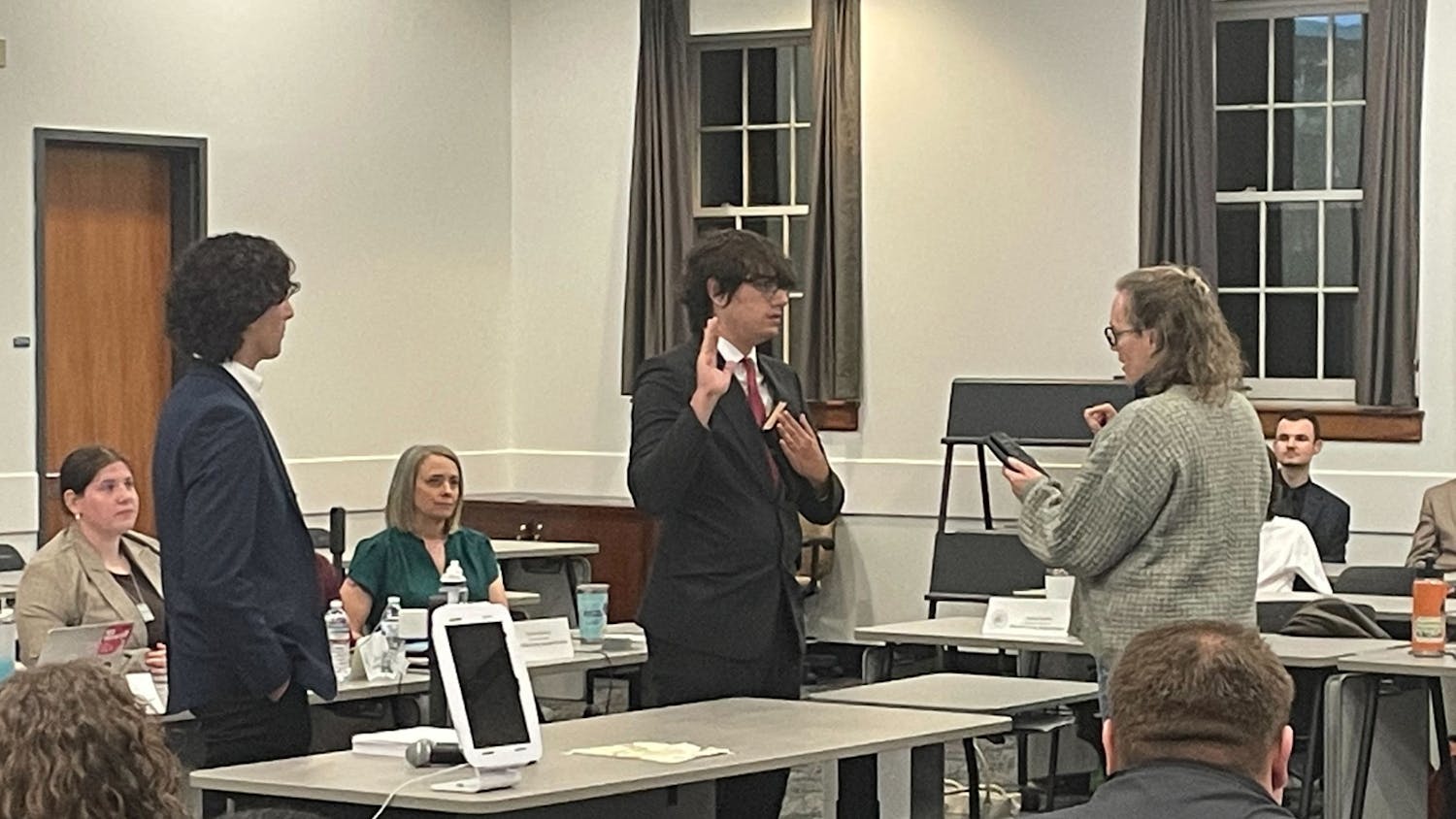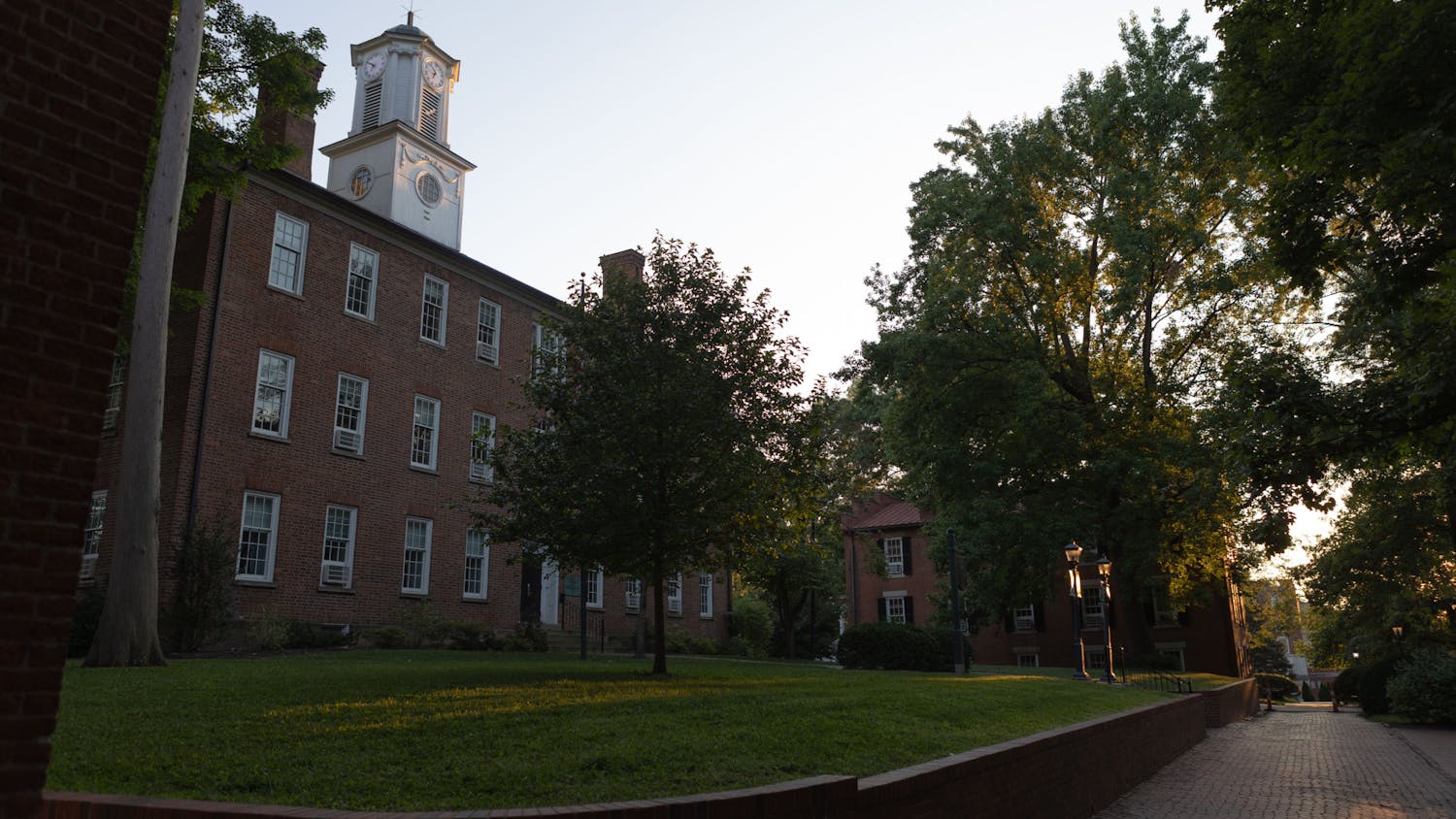Lausche Heating Stats from 2012 Board of Trustees agenda
47-year-old, coal-fired boiler: 65,000 pph (pound per hour)
17-year-old, natural gas-fired boiler: 122,000 pph
Total capacity: 315,000 pph
Firm capacity: 195,000 pph
Peak load: ~180,000 pph
Boilers were re-tubed in 2009
Natural Gas Capacity
Boiler No. 1: 65,000 pph
Boiler No. 4: 120,000 pph
TIMELINE:
8:30 p.m.: Buildings went dark
9:30 p.m.: Critical Incident Response Team assembled
9:45 p.m.: Power restored to most buildings
10:30 p.m.: Power flickers in buildings
The Lausche Heating Plant experienced more heat than it bargained for when a fire broke out Monday night, spurring power outages in many Ohio University buildings.
The plant was already slated for discussion at OU’s Board of Trustees meeting later this week, where the board will discuss a possible $91 million overhaul.
Electricity remained off for about an hour Monday at buildings including Baker University Center, Alden Library, Bromley Hall, Scott Quad and other buildings near the center of campus before being restored, with the exception of the OU Inn and The Ridges, which remained without power, according to a 9:45 p.m. update on OU’s website.
Around 8:30 p.m., many of the buildings went dark — the same time Athens Fire Department responded to the electrical fire at the plant, said Jennifer Krisch, an OU spokeswoman.
The university’s Critical Incident Response Team was activated around 9:30 p.m.
OU’s Critical Incident Response Team is co-chaired by OU Police Department Chief Andrew Powers and Assistant Vice President for Safety and Risk Management Joe Adams. The team is activated during any “crisis situation” at the university, according to its guidelines on OU’s website.
No injuries were reported as of press time and Athens Fire Chief Bob Troxel did not immediately have a cause for the fire, but OU officials later linked the outages to the fire at the plant.
Firefighters arrived to find an electrical fire and heavy smoke with as much as 4,000 volts coursing through the plant, Troxel said.
“We had some issues killing the power,” he said. “It was really concerning.”
With most of the Athens firefighters controlling the fire inside the plant, Troxel called in the Richland fire crews for backup.
The electrical fire required firefighters to use carbon dioxide, not water, and OU staff collected fire extinguishers from around campus to help combat the blaze.
Firefighters had begun to control the fire around 10 p.m., though it would occasionally “flare up,” Troxel said. To increase ventilation of toxic smoke, firefighters cut a hole into the side of the plant.
Crews were working to get half of Lausche operational so power could be restored to campus.
OU’s Board of Trustees will consider overhauling Lausche at their meeting this week as part of the Capital Improvement Plan.
The new plant will be primarily natural gas driven and should be completed by 2016 at a cost of $91 million, if the board approves the plan.
Power outages not related to Lasuche fire also affect campus.
It wasn’t the first power outage OU students experienced Monday — several buildings went dark because of American Electric Power’s maintenance on Athens transmission lines.
“We notified them of our maintenance, and they’re aware of the situation,” said Jeff Rennie, AEP spokesman. “We’re trying to minimize any problems with the university.”
Maintenance started Sept. 30 and will continue until Dec. 2.
OU has two electrical feeds with energy provided through AEP. However, because of the transmission maintenance, the university’s substation only has one electrical feed providing energy to campus buildings.
“There’s a slight chance there might be a small problem,” Rennie said.
OU’s entire campus was affected by the power surge, Mike Gebeke, executive director of Facilities Management, said in an email.
“Since the fault was caused by the main system, the campus electrical distribution system needs to be reset manually,” Gebeke said. “The normal automatic resets are disabled when it is a fault from the utility. …That is why we have to bring in the electricians to bring the system back online.”
Gebeke said the university’s equipment should be able to handle all the damages and costs will be minimal. But AEP will not provide funding for the power trip.
“If the damages are severe, Risk Management and Safety may need to be involved,” he said.
dd195710@ohiou.edu
hy135010@ohiou.edu
hy135010@ohiou.edu





